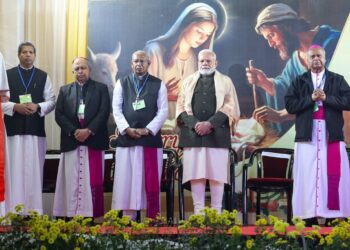Amnesty International has issued a strong call to the Indian authorities, urging them to repeal a series of new criminal laws that the organisation describes as repressive. The human rights group expressed deep concern over the potential impact of these legislative changes on fundamental freedoms and human rights protections in India.
On 11 August 2023, the Indian Ministry of Home Affairs introduced the Bharatiya Nyaya Sanhita (BNS), Bharatiya Nagarik Suraksha Sanhita (BNSS) and the Bharatiya Sakshya Adhinayam (BSA) bills to replace the 1860 Indian Penal Code, 1973 Code of Criminal Procedure and 1872 Indian Evidence Act respectively in the Indian Parliament. These laws came into effect from 1 July 2024.
In a statement released on their official website, Amnesty International criticised the new laws, which they argue could be used to stifle dissent and target marginalised communities. The organisation highlighted specific provisions that it believes pose significant threats to free expression, peaceful assembly, and the right to privacy.
“These new laws represent a significant rollback of fundamental rights in India. They provide the government with sweeping powers that could be used to silence dissent and undermine the democratic principles upon which the country was founded.”
Aakar Patel, Chair of Amnesty International India
Although the Indian government claimed that an extensive consultation process was undertaken, the committee was criticised for its lack of civil society and gender representation and its final report was never made public, Amnesty claimed.
One of the main points of contention is the expanded definition of terrorism, which Amnesty International claims could be misused to suppress political opposition and legitimate activism. The group also raised alarms over increased surveillance powers granted to law enforcement agencies, warning that these measures could lead to widespread violations of privacy rights.
Amnesty International’s call comes at a time of heightened concern over the state of civil liberties in India. The organisation urged the Indian government to engage in meaningful dialogue with civil society and human rights defenders to ensure that any legislative changes are in line with international human rights standards.
The statement urges the Indian authorities to prioritise the protection of human rights and to repeal the repressive laws that threaten the democratic fabric of the nation.











